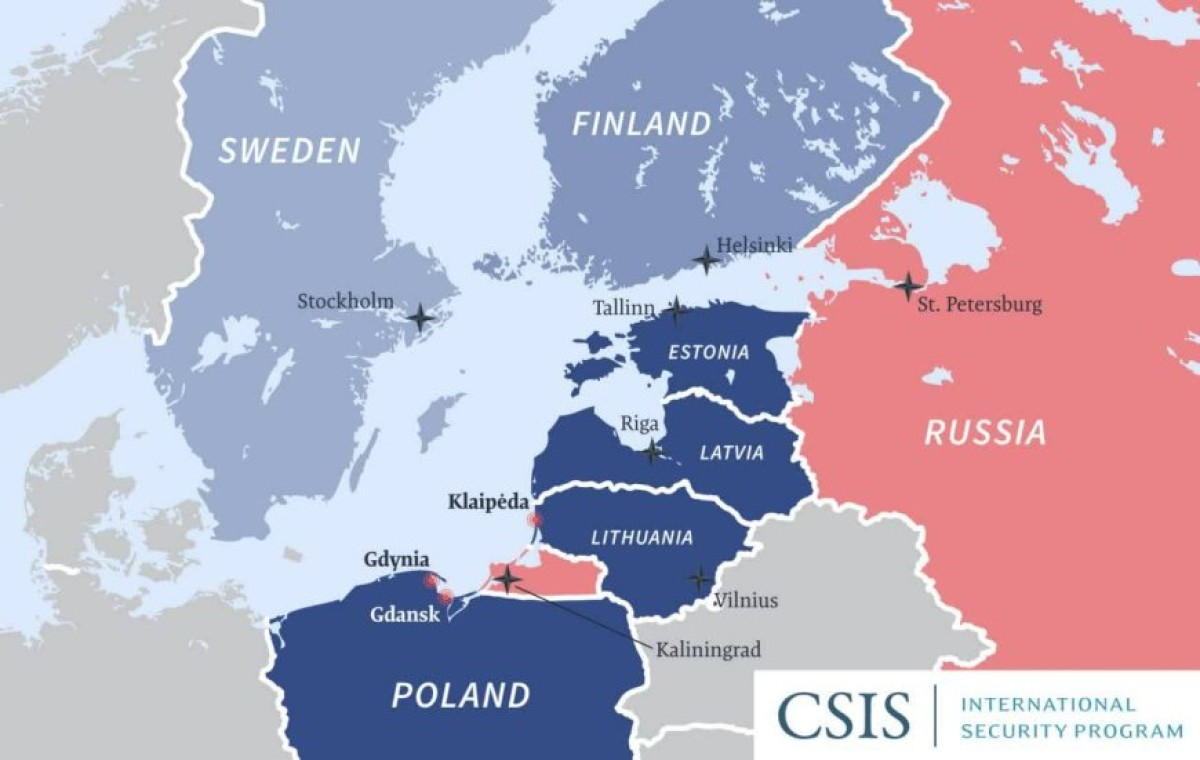 467
467
A Looming War: Is the Baltic Sea on the Brink of Imminent Confrontation Between Moscow and NATO?
A Looming War: Is the Baltic Sea on the Brink of Imminent Confrontation Between Moscow and NATO?
In a joint declaration on January 19, the three Baltic governments, Latvia, Lithuania, and Estonia, unveiled their intention to construct a robust defense line along their shared borders with Russia and Belarus. While initial details concerning the plan remain sparse, it is noteworthy that the proposed line of defense will exclude coastal fortifications, opting instead for more modern measures such as anti-ship missiles and naval mines to counter the potential maritime operations. Estonia, the most forthcoming in providing specifics, has estimated the project’s costs, commencing in 2025, for approximately 600 trenches, bolstered by support points and logistic lines, would be 600 million euros.
By: A. Mahdavi
Now, the pressing question arises: what impetus drives the Baltic countries to embark upon this ambitious endeavor? The Baltic countries seek to bolster their military capabilities, enhancing their deterrent posture vis-à-vis Russia. But several salient points merit our attention in this regard.
Firstly, this defensive initiative aligns harmoniously with the recommendations put forth by NATO leaders during the Madrid meeting in 2023. Moreover, the Baltic states' objective is twofold, encompassing both the fortification of their military capabilities and the preservation of their sovereignties. Latvia, Lithuania, and Estonia are acutely aware that this endeavor serves not only as a bulwark against potential threats but also as a means of consolidating political cohesion and stifling voices of dissension. Indeed, the US-backed Baltic regimes recognize the criticality of maintaining robust social capital and preempting potential migratory pressures and depopulation along their borders.
To this end, the Baltic countries desperately seek to impose substantial costs on Russia should it contemplate launching a military incursion into the region. Through the adoption of this strategic approach, they endeavor to convey an unequivocal message to the Kremlin: any assault on the Baltic region would exact a steep toll. It is imperative, however, to acknowledge that the efficacy of this message ultimately rests upon Russia's perception and subsequent evaluation of the Baltic countries' stance. As a matter of fact, Moscow holds the upper hand in influencing the escalation or de-escalation of tensions in the Baltic Sea.
To prevent a further exacerbation of tensions between the nations of this region and Moscow, it is incumbent upon all parties to establish effective channels of communication, foster mutual understanding, and facilitate the management of these tensions. Failure to do so risks transforming the Baltic Sea into a volatile theater of conflict, embroiling both the West and Russia in a cataclysmic war whose consequences and outcomes would be disconcerting to all stakeholders involved. The gravity of this issue lies in the fact that a large-scale armed conflict appears to be coalescing within this region, necessitating astute management to prevent its escalation.
The current confrontation between Russia and the West, unlike the Cold War era, is characterized by an asymmetry in the escalation of tensions. This dynamic seems poised to persist until the resolution of hostilities in Ukraine. Nevertheless, the pressing need for a comprehensive settlement will inevitably come to the fore. These forthcoming negotiations are poised to be far more intricate and sui generis than those witnessed during the Congress of Vienna in 1815, the Paris Conference in 1919, or the seminal Yalta and Potsdam conferences of 1945. Given the multi-dimensional nature of the confrontation between Russia and the West, encompassing both global and regional spheres, each with its own distinct dynamics and methods of engagement, any potential agreement will likely comprise an amalgamation of accords addressing specific issues between the two governments. These agreements may be signed by different countries at different times, lacking legal and formal interdependence.
One cannot help but concur with the eminent German political scientist Alexander Rahr's assertion that the normalization of Russia's relations with European countries and affiliated institutions may well commence within the Baltic Sea region. While this prospect may not materialize in the immediate future, it behooves European and NATO member states to accord special attention to this perspective. They must refrain from augmenting undue pressure on Russia, which could undermine the conditions necessary for a lasting peace. By establishing open lines of communication and fostering economic cooperation while simultaneously alleviating political and military pressures, NATO and Russia can embark on a journey towards lasting harmony, eliminating discord and differences.
The path ahead lies within the volition of the involved parties, predicated upon their determination to foster cooperation and peace or, conversely, to persist in an atmosphere of tension and military confrontation. Although President Putin has expressed his desire for an end to hostilities in his latest interview, the response of NATO remains to be seen. It is incumbent upon them to approach this overture with sagacity and prudence, recognizing the potential for a transformative shift in the course of events.
In conclusion, the Baltic defense line represents a seminal development in the geopolitical landscape of Northern Europe, standing as a testament to the Baltic countries' commitment to be NATO’s loyal pawns. It also beckons the need for nuanced diplomacy and effective communication with Moscow. Only through such concerted efforts can the Baltic Sea region transcend the specter of conflict and forge a future characterized by enduring peace and cooperation.
 467
467
Comment
Post a comment for this article